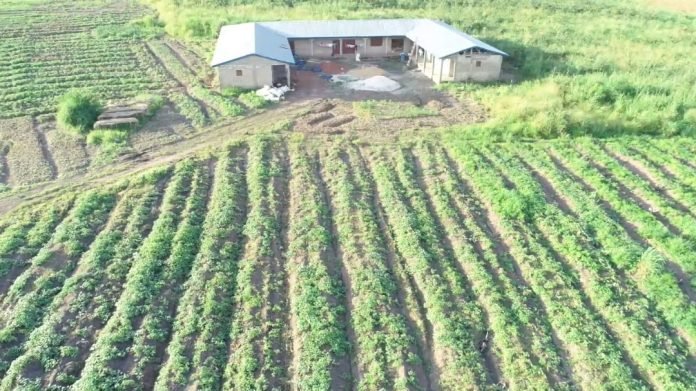By Amin Kef Sesay
A country’s economic, environmental and social well-being is intricately linked to a healthy, well performing agricultural sector. Thus, increasing investments in the farm economy can deliver high-impact development returns such as increasing rural incomes, boosting food security, making cheap and more nutritious food available to our bustling cities and protecting the environment through innovations such as climate smart agriculture.
Thus, whatever infrastructural development is done, fact of the matter is that, reducing food poverty remains our country’s supreme development challenge, with completely transforming the sector key to achieving a transformational impact on the over 65% of rural dwellers that depend on it for their livelihood in one way or the other.
Data shows that more than 70 percent of the poor live in rural areas and agriculture is their most important economic activity.
Thus, the stage must be set for agriculture to begin to redress the imbalances of the past and assume its proper place as a major agricultural powerhouse for ending poverty. For this transformation to occur, however, many impediments must yet be overcome.
Irrigation and land administration investments are key elements of the transformation and these have particularly high preparation costs. In the case of irrigation, this fact is partly explained by the need to take full advantage of instruments such as Strategic Environmental and Social Assessments when preparing projects to ensure that they are socially and environmentally benign.
Preparation and implementation of investments in land administration are complicated both by concerns over land grabs and by the shortage of professionals working in this field.
The country’s true Green Revolution must begin at the farm level, with producers using modern technologies. This will not happen as long as inputs remain overpriced.
Water resources are, on average, greatly underutilized. Only 2 to 3 percent of renewable water is used. Furthermore, relative to other regions, Sierra Leone has low labor costs, which should encourage the production of labor-intensive farming-related products and services.
Sierra Leone has the resources necessary for a massive expansion of agricultural production, including an abundance of labor, land and untapped water,
Notwithstanding these advantages, since the war ended in 2002, Sierra Leone has been losing its share of the global agricultural market.
As exports have fallen, imports have skyrocketed, as intra-African regional market opportunities were consistently missed time and again. Whilst the “Green Revolution” transformed tropical agriculture in Asia and Latin America in the last 50 years, two main factors are responsible for our agricultural backwardness.
First, little land is actually irrigated.
Second, modern inputs are grossly underutilized with very low use of improved seed and fertilizer use, in spite of considerable efforts by Governments and donors to raise them.
Inadequate use of purchased inputs, along with low private sector investment in general, has been exacerbated by an unfavorable policy environment that has reduced the profitability of investments.
Public investment in the sector remains low in quantity and quality, and much of the policy towards the sector was driven by ineffective state-owned enterprises.
Thus, many opportunities for profitably expanding irrigated areas and increasing the use of modern technology have been identified, and the fact that our farmers are far from the technological frontier means that there is significant potential for catch-up.




